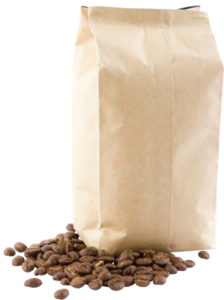Eight Months After Launch
Not only is Amazon trying to increase its share of the grocery game through online delivery and now its brick-and-mortar Amazon Go stores, it has also recently entered into the world of private brand consumables. When the news was first announced in the spring of 2016, reaction was one of robust concern—and raised many questions. What was their strategy? How would it affect brick-and-mortar retailers? What did it mean for the future of private brands in grocery as a whole?
 Just over eight months later, “the entry that analysts thought would make waves has created little more than a splash,” says Jean Ryan, Director of Brand and Marketing Strategy for Daymon. According to an analysis by Daymon, by the end of 2016, Amazon had launched just about 40 products under four private brand labels.
Just over eight months later, “the entry that analysts thought would make waves has created little more than a splash,” says Jean Ryan, Director of Brand and Marketing Strategy for Daymon. According to an analysis by Daymon, by the end of 2016, Amazon had launched just about 40 products under four private brand labels.
Happy Belly, with focuses primarily on nuts, trail mixes and organic coffee (with a recent addition of cage-free eggs for AmazonFresh customers), is the largest of Amazon’s private labels so far. Available only to Amazon Prime members, pricing and packaging cues indicate the brand is aimed at shoppers open to purchasing premium goods, says Katie Burkhardt, Manager of Brand and Marketing Strategy for Daymon. “Though Amazon is treating Happy Belly as an independent brand, it is also indirectly promoting the brand by driving traffic to its product pages through banner ads and search results,” she says.
Amazon’s Mama Bear line, which targets eco-conscious mothers and currently includes laundry detergent and a few baby foods, is also treated as an independent brand. However, unlike Happy Belly, Amazon has taken a much more cautious approach to its promotion, says Burkhardt. “While the brand does have a landing page, typing ‘Mama Bear’ into the search bar on Amazon.com does not yield a Mama Bear ad. Rather, one must type in ‘Mama Bear detergent’ to find an actual product. It’s clear that at this initial stage, Amazon is keeping its distance from the brand,” she explains.
 Similar to Mama Bear, Presto! is also aimed at the eco-conscious consumer. The brand’s only offering is a bio-based liquid laundry detergent free of dyes, fragrances and artificial ingredients. Like Happy Belly, Presto! has its own landing page as well as banner ads when searched on Amazon.com.
Similar to Mama Bear, Presto! is also aimed at the eco-conscious consumer. The brand’s only offering is a bio-based liquid laundry detergent free of dyes, fragrances and artificial ingredients. Like Happy Belly, Presto! has its own landing page as well as banner ads when searched on Amazon.com.
Rounding out Amazon’s family of private brands is Wickedly Prime. This newest brand debuted in December with four gourmet snack products, including flavored popcorn, shelled almonds and two varieties of tortilla chips. Burkhardt explains that unlike the three other brands, there are two clues that clearly link Amazon to Wickedly Prime. First is the use of the word “Prime” in the name. Second is the use of a playful arrow underscoring the Wickedly Prime logo—a clear reference to the parent Amazon logo. “Amazon also drives traffic to the brand through banners and search results,” she adds.
Though Amazon’s private brand introduction has been slower than expected and its promotion inconsistent, both Ryan and Burkhardt warn against counting Amazon out. “While Amazon is still in the process of building the type of private brand line that traditional retailers already have, one shouldn’t assume that they’ll always be behind,” says Burkhardt. “In many ways already, they’re going above and beyond—for example, offering only organic coffee in the Happy Belly line, rather than starting with a core line and adding an organic version as the premium.”
“We suspect Amazon’s foray into private brand is intended to add one more piece to their ecosystem of solutions,” adds Ryan. “The vast number of trademarks they’ve applied for, their history of success with private label in the batteries category, and their access to an abundance of data and supplier partners builds a strong case for their ability to succeed.” Ryan says traditional retailers and brands should continue to keep a close eye on Amazon’s approach to private brand, and be prepared to act on the lessons that can be learned from the e-commerce leader’s experience.
To learn more about Daymon private brand development and strategy services, contact Aimee Becker, Vice President of Strategic Services, at abecker@daymon.com.

